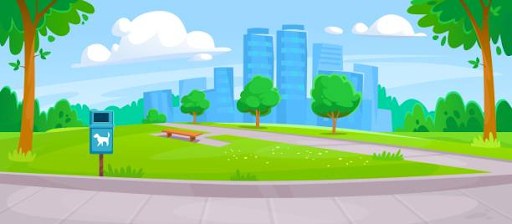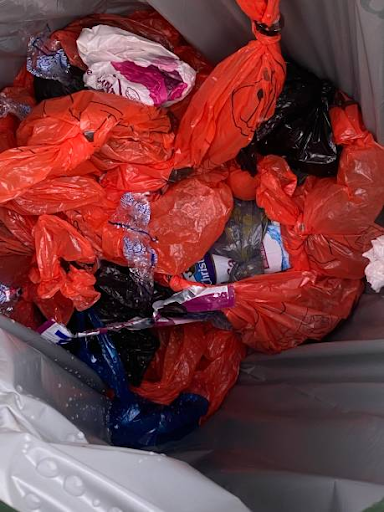Welcome to the comprehensive blog: "Where Will You Store Your Dog Poop When Outside The Ultimate Guide." As responsible pet owners, we understand the importance of maintaining a clean environment while enjoying outdoor activities with our furry friends. Did you know that an estimated 10 million tons of dog waste is produced annually in the United States alone? Improper disposal can lead to health hazards and water contamination. This blog aims to address these pinpoints by providing simple yet effective solutions to store dog poop while outdoors. Join us as we explore various methods, data on environmental impact, and practical tips to keep our communities clean and eco-friendly.
Types of Dog Waste Bags: Pros and Cons
When it comes to handling your dog's waste responsibly, choosing the right poop bag is crucial. Let's address the pinpoints of different options available:
A) Biodegradable poop bags:
These bags are designed to break down naturally over time, reducing environmental harm. They offer a planet-friendly alternative.
B) Compostable poop bags:
Compostable bags are made from organic materials that can be broken down in a composting environment. They're eco-friendly and convenient for eco-conscious pet owners.
C) Plastic poop bags:
Traditional plastic bags take a long time to decompose and contribute to pollution. They're the least environmentally friendly option.
Comparison of environmental impacts and Effectiveness
When it comes to choosing the right dog waste bags, it's essential to address the pinpoints and consider their pros and cons. Let's take a closer look at the environmental impacts and effectiveness of different options:
Biodegradable poop bags offer a planet-friendly solution as they naturally break down over time. Compostable poop bags, made from organic materials, can be easily broken down in a composting environment. On the other hand, traditional plastic poop bags take a long time to decompose and contribute to pollution.
By comparing their environmental impacts and effectiveness, we can make an informed decision to promote a cleaner and greener environment for all.

Best Practices for Properly Storing Dog Poop
When it comes to dog waste management, following best practices ensures a cleaner environment for all. To address the pinpoints of proper dog poop storage, consider these simple guidelines:
Immediate Cleanup: Always pick up after your dog right away to prevent contamination. Double-Bagging: Use two poop bags to avoid leaks and ensure added protection.Securely Tying the Bag: Knot the bag tightly to prevent any accidental spills.
Odor Control: Opt for bags with odor-controlling features for a more pleasant experience.Portable Containers: Carry a designated container when on the go for easy and safe storage.
Adhering to these practices not only keeps our surroundings clean but also contributes to a healthier ecosystem.
Disposing of Dog Poop: Dos and Don'ts
When it comes to dog waste disposal, it's crucial to address the pinpoints of proper handling to ensure a cleaner environment. The dos and don'ts below will guide you in responsible dog poop management.
Dos:
- Pick up your dog immediately to prevent contamination.
- Double-bag poop using biodegradable or compostable bags for eco-friendly options.
- Securely tie and seal the bag to avoid leaks and spills during disposal.
- Dispose of the bag in designated waste bins or local disposal stations.
Don'ts:
- Don't leave dog poop on the ground; it can lead to health and environmental hazards.
- Avoid flushing dog waste down the toilet, as it can harm sewage systems.
- Remember, following these simple guidelines will help protect the environment and create a healthier community for all.

Teaching Responsible Dog Waste Management to Others
Teaching responsible dog waste management is essential to address the pinpoints of environmental pollution and public health risks. By spreading awareness and educating fellow dog owners, we can create a cleaner and safer community for everyone.
Here are simple steps to guide others:
- Lead by example: Always clean up after your dog and demonstrate the proper disposal method.
- Engage in conversations: Encourage discussions with fellow dog owners about the importance of responsible pet ownership.
- Participate in cleanup initiatives: Organize or join community cleanup events to promote a cleaner environment.
- Educate children: Teach kids about the significance of picking up after pets to protect our surroundings.
Together, we can make a positive impact and build a healthier environment for all.
Conclusion
In conclusion, this ultimate guide has addressed the pinpoints of responsible dog poop disposal when outside. We understand the importance of this topic to keep our environment clean and safe. By using biodegradable or compostable poop bags, securing them properly, and finding nearby disposal stations, we can make a significant impact. Remember to always clean up after your dog immediately and follow local regulations.
Properly stored dog poop can benefit the environment by reducing water contamination and plastic waste. Let's take the initiative to teach others about responsible pet ownership and encourage community cleanup initiatives. Together, we can build a cleaner and healthier world for ourselves and our beloved furry friends.
Frequently Asked Questions (FAQ)
A. Responsible dog poop disposal is crucial to maintain a clean and safe environment for everyone. If left unattended, dog waste can pose health hazards to humans and other animals, contaminate water sources, and attract pests. Additionally, not cleaning up after your dog can lead to legal consequences and fines in many places.
A.The ultimate guide recommends using biodegradable or compostable poop bags, which are eco-friendly and reduce environmental impact. Always double-bag to prevent leaks and choose a convenient poop holder that attaches to your leash or belt for easy access.
A.You can use mapping apps or check local park websites to locate nearby dog waste disposal stations. Many public spaces and residential neighborhoods have designated bins for dog waste. Being aware of these locations helps ensure proper disposal when you're out with your furry friend.
A.While composting dog waste is an option, it requires careful management due to potential health risks. Only compost dog waste in dedicated compost systems specifically designed for pet waste. Never use it for vegetable gardens or plants that come into contact with food.
A.Lead by example and educate fellow dog owners about the importance of proper disposal. Participate in community cleanup initiatives and share information on social media or local forums. Teaching children about responsible pet ownership instills good habits from an early age, contributing to a cleaner and healthier community.



